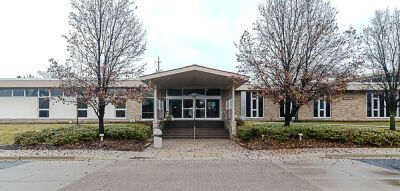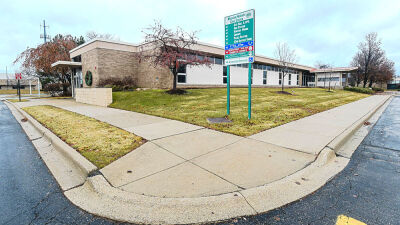MADISON HEIGHTS — Officials in Madison Heights are sounding a note of fiscal caution — but not alarm bells — after a report forecasting challenges with inflation, state revenue sharing and other policies that continue to strain Michigan cities.
The city manager and finance director prepare the five-year forecast, watching indicators such as housing sales, building permits, taxable value estimates, county budget proposals and estimates, mortgage interest rates and more. This year’s forecast also included the Michigan Economic Outlook, a report published by the University of Michigan in November 2024.
That report highlighted Michigan’s economic deceleration at the end of last year, with moderate job growth now expected in 2025 and 2026, and inflation stabilization around 2.1-3% during that time.
“Inflation impacts both our taxable value growth and operational costs,” said Melissa Marsh, the city manager of Madison Heights, via email.
In addition to affecting the costs of goods and services, including contractors with the city, inflation also factors into the Headlee Amendment and Proposal A — two state policies that together limit what a city can collect from its tax base to 5% or the rate of inflation, whichever is less.
“Despite the improved economy, given the cap on rolled-back mills means that when the taxable values drop, or when inflation exceeds the amount approved by the state, the city has no mechanism for financing that gap without additional millages,” Marsh said.
As a result, levying the full amount of Proposal MH — a general charter increase narrowly approved by voters in 2019 — may be necessary as early as fiscal year 2026 or 2027, when before it wasn’t anticipated to occur until fiscal year 2028. This is due to expenditure inflation exceeding the city’s revenue inflation that was capped at 5% for the past two years. At present, Madison Heights levies 13.4674 mills; the full limit is 13.9483 mills.
Not helping matters is the state’s revenue sharing model, which city officials say has not kept pace with the costs of operation. Back in 2003, the city of Madison Heights received $3.55 million in state shared revenue, but in 2025, more than 20 years later, the city will receive only $3.73 million — an increase of only $180,000. There was recently a proposal in the state Legislature for a trust fund to help improve state shared revenues, but it died in the state Senate during a lame duck session.
Marsh said it’s unfortunate, and unfair.
“Michigan’s municipalities play a crucial role in the state’s economy,” Marsh said. “We rely on revenue sharing, a system set forth by the state constitution and statute, to fund essential services like police and fire protection, roads, water and sewer systems, and waste collection. The formula for distributing this revenue sharing was designed to compensate communities for their contributions and the higher costs they bear.
“When this system is underfunded, the entire Michigan economy suffers,” Marsh concluded. “As signs of an approaching recession begin to surface, it’s vital to understand the financial struggles facing Michigan’s communities. If the revenue sharing system is not addressed before the next downturn, local governments could face severe consequences.”
The city manager also said it’s important to note that of the taxes paid by residents in the city, only 44% are for city services. She described her administration’s approach as “financially conservative” with the No. 1 priority of long-term financial stability. Under this approach, the city has adopted a balanced budget annually, striving to keep the city portion of the millage as low as possible while keeping a healthy amount in cash reserves — an anticipated $11.4 million by June 30.
The city’s fund balance policy requires 16% of operating expenditures plus one year of debt payment to be held in reserve, an amount that ranges around $7.5 million and is factored into each budget proposal.
In terms of the city’s spending habits, the forecast projects more than $40 million in capital assets and infrastructure projects between now and the end of 2030. This includes planned road maintenance and road projects totaling about $17.3 million, water and sewer maintenance and improvements totaling about $8 million, investments in public safety totaling about $9 million, and park investments totaling about $4 million, which is separate from a $7 million investment being made by Oakland County at Ambassador Park.
Inflation, combined with shortages, have driven up the cost of replacing pieces of equipment for public safety, as much as 39%-56%, Marsh said. Police body cameras and Tasers, for example, have a subscription model and storage costs approaching nearly $700,000 for five years. The same goes for the city’s software after they switched over to new computers, with a paid subscription to Microsoft 365 now required for all users.
Mark Bliss, the mayor pro tem, said it’s the same pressure felt by residents in their daily lives.
“The eggs at Meijer and the concrete used for roads are different things, obviously, but the cost increases are the same,” Bliss said. “The inflationary pressures are hitting both eggs and concrete. Much like when you go to the store and find it harder to afford eggs, if they’re even in stock, it’s the same with everything the city buys. And so we are aware that if things don’t change and improve, we’re going to have to make tough decisions in three to five years. But there is still time, and we’re still very much ahead of the curve, precisely because we plan ahead, and because we troubleshoot possible issues with our five-year forecast.
“These are not warning bells or alarms or anything,” Bliss added. “We just see the inflation and the state not increasing revenue sharing, and the economic landscape and how it could impact us if nothing changes, and we’re thinking of ways to survive it. There are many ways to respond to whatever comes our way. If you know it might rain, you bring an umbrella — and residents should know that we’ll continue to be ready for rain.”
 Publication select ▼
Publication select ▼




















